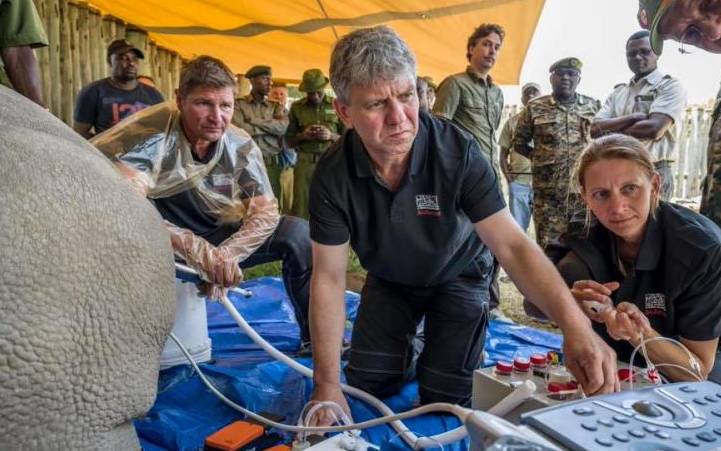×
The Standard e-Paper
Home To Bold Columnists

Fatu is undergoing the ovum pick-up procedure performed by Prof Robert Hermesfrom Leibniz-IZW (left), Prof Thomas Hildebrandt from Leibniz-IZW (middle) and Dr Susanne Holtze from Leibniz-IZW (right) Ami Vitale. [File, Standard]
The initiative to save northern white rhinos from extinction has stalled as a result of travel restrictions effected to control Covid-19 pandemic.